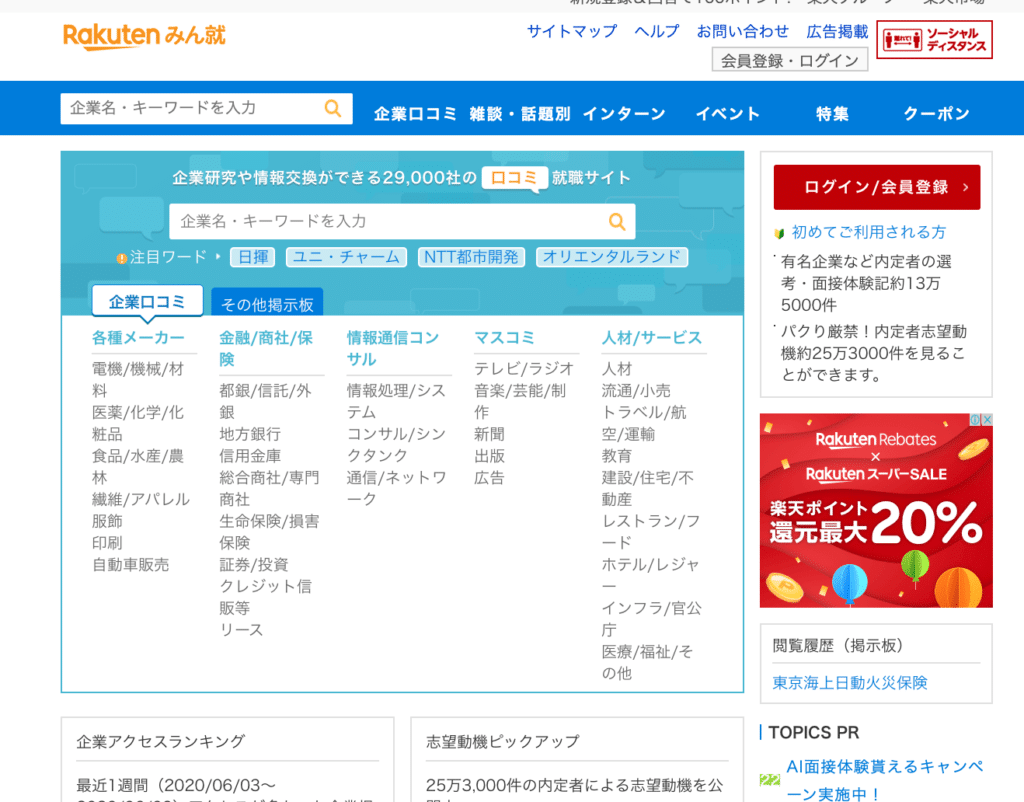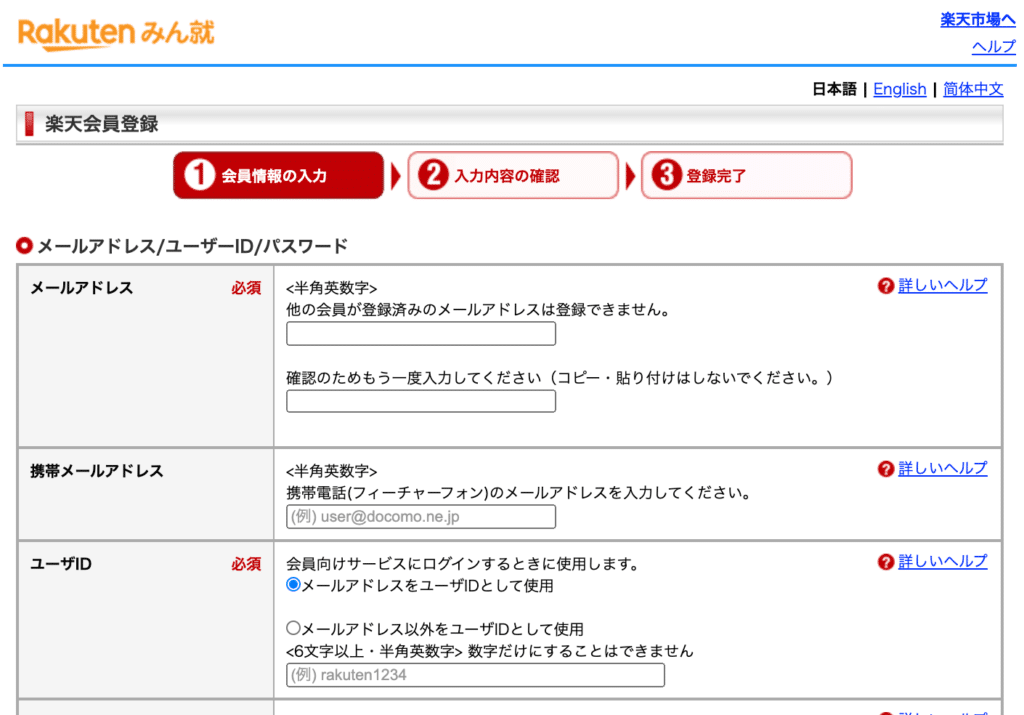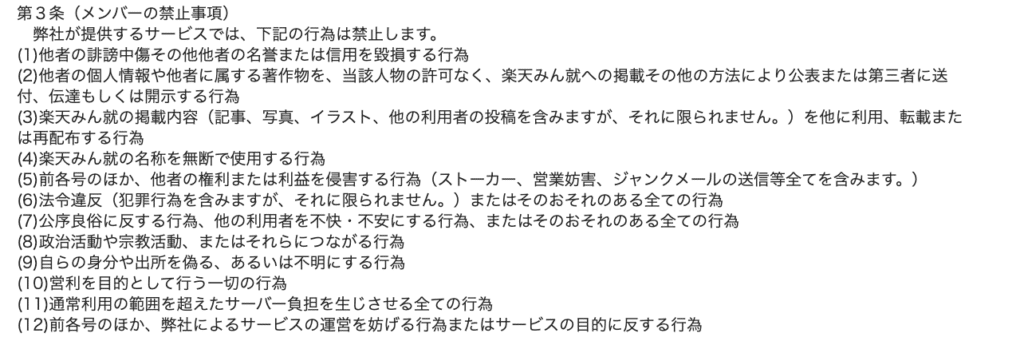An Attorney Explains How to Identify Posters on Minshu if Necessary

When university students are job hunting for their post-graduation career paths, they often register on job search websites to gather information about companies and job openings. Specifically, job seekers utilize reviews and information on these websites to understand the company culture, working environment, and interview process of potential employers, which aids in their selection and strategy planning for job applications.
Minshushoku is a job search community and review website. On this site, you can browse company information and use job search-related forums. Minshushoku features a wide range of reviews, from positive to negative, providing job seekers with valuable insights from those who have actually experienced job hunting. However, if negative posts that significantly damage a company’s reputation, such as allegations of job hunting harassment, are made, it could not only hinder recruitment activities but also tarnish the company’s reputation. In this article, we will explain the procedures and methods for making legal claims against individuals who post such reviews.
What is Minshu?
What kind of site is Minshu?

Minshu is a job hunting community and review site operated by Rakuten, Inc. On Minshu, you can view information about approximately 26,000 companies and over 7 million reviews. It is said that about 80% of students job hunting are registered on Minshu, making it one of the leading job hunting related sites.
One of the contents of Minshu is the selection and interview experience report, where detailed real experiences such as what was asked in the interview and what was written and submitted in the successful ES are posted. The bulletin board content is personalityized by the ability to update in real time, and various topics such as “Have the results of the interview I took in ○ month come yet?” and “What was the interview at ○○ Trading like?” are lined up. Minshu judges that “negative posts” can also be “useful information” for job hunting students, and adopts a policy of not easily deleting topics that include negative content such as slander. For job hunting students, it can be said to be a site where they can speak their true feelings, but there is a risk of negative effects on companies as slanderous posts are likely to remain.
Examples of slander on Minshu
The posters on Minshu are mainly students using Minshu. However, Minshu is one of Rakuten’s contents, and anyone can use the service if they are a Rakuten member, and Rakuten membership registration is possible even with a free email address (no strict identity verification), so even non-job hunting students can use the service (viewing and posting).
Job hunting is one of the important events in life, and the selection process is often opaque, so there are not a few sensitive posts. Especially, there are many negative reviews in the section of “bad points” in the selection and interview experience report. Also, many negative reviews are posted on the bulletin board. Examples of negative posts include the following reviews.
- Even though my other friend got a job offer after two interviews, I was called five times and eventually dropped.
- I was sexually harassed by employee B during the internship. It was disgusting, but I couldn’t say anything because of my position.
- I was told that I would get a job offer and declined other companies, but in the end I didn’t get a job offer.
- I was attacked by the interviewer with abusive language and personality denial.
Since Minshu has a large number of users and a strong influence, if the content is groundless or written with a bad impression exaggeratedly, it may not only hinder the company’s recruitment activities but also significantly lower the reputation. In particular, if the posted review “flames” and becomes a target of criticism, it may affect performance and stock prices, and there is a possibility of suffering a huge economic loss.
In order to avoid such risks, if there are posts with problems or posts that may lead to or are actually causing reputational damage, it is advisable to consider early measures such as requesting deletion or identifying the poster and claiming damages.
In order to identify the poster (procedure for requesting disclosure of sender information based on the Provider Liability Limitation Law), it is necessary to judge that the wording contained in the post is illegal. What is important for this is whether the infringement of rights is clear. Simply put, a high level of maliciousness of the post content is required. For example, even if it is groundless, if it is written that “I was sexually harassed by Mr. B of the personnel department”, it is taken as if Mr. B had committed a potentially criminal act of obscenity, and it is clear that it is a post that infringes on the right to honor, meeting the requirements of the Liability Limitation Law. For more details, please refer to the articles linked below on our website.
https://monolith.law/reputation/delete-arrest-history[ja]
https://monolith.law/reputation/slander-defamation-law[ja]
Procedure for Identifying the Poster 1: IP Address Disclosure Request
What is an IP Address
The first step in identifying the author of a post on Minshu is to request the disclosure of the IP address. An IP address is a number used to identify a terminal connected to the Internet, similar to an address on the Internet. We request the site operator (content provider) who records the IP address to disclose the IP address of the problematic review poster, and identify the posting terminal.

Minshu, as mentioned earlier, is one of the services provided by Rakuten, and anyone who is a Rakuten member can post. And Rakuten’s membership registration does not require strict identity verification or identification, and registration is possible even with anonymous free email addresses such as Gmail. Therefore, even if you request the disclosure of the poster’s membership information on Minshu, it doesn’t make much sense if there is a possibility of falsehood, and you need to have the IP address disclosed to identify the person.
Request for Disclosure of Poster’s IP Address by Provisional Disposition Procedure

The procedure to disclose the IP address is a court procedure called a sender information disclosure request. In the case of a deletion request, if there is a violation of the terms and conditions, it may be accepted without going through the court, but if it is a disclosure of the IP address, you will have to go through the court procedure. If there is no need for a damage claim, and you just want to delete the review, it is one way to just make a deletion request.
https://monolith.law/reputation/deletion-of-malicious-reviews-on-minshu[ja]
Although court procedures may seem troublesome and complicated, it is possible to respond quickly and easily by using a procedure called a provisional disposition application, which is not a main trial. There are costs and effort involved, but it can be completed in about 1 to 2 months, so it can be said to be an effective measure. Generally, attorney fees are said to be,
about 300,000 yen for the retainer fee, and about 300,000 yen for the success fee
This is the market price when requesting the disclosure and deletion of the IP address. However, the specific amount varies depending on the content of the case, so please use this as a reference.
Need to Assert and Prove that the Post is Illegal
In order to have the court recognize the disclosure of the IP address by the provisional disposition method, it is necessary to recognize that the post corresponds to something illegal. Article 4, Paragraph 1 of the Provider Liability Limitation Act states “when it is clear that the rights of the person requesting the disclosure have been infringed by the distribution of infringing information”, so it is necessary to assert that there is an illegal point that corresponds to this.
In some cases, it may be better to use the time-consuming and labor-intensive court procedure to just get the deletion handled. In that case, it may be possible to realize it by requesting Minshu, the content provider in this case.
In that case, in addition to the illegality of the post content, if there is a fact of violation of the terms of use, it may be possible to realize it. Even if it does not amount to illegality, it may be possible to delete it if it falls under the post that Minshu independently prohibits. This is just a deletion policy (standard) that the Minshu operator has independently decided, and it does not necessarily mean that it is illegal and legally recognized. In other words, even if there is no illegality, you may succeed in deletion if you request the site to delete it.

On the other hand, to have the disclosure of the IP address recognized, you need
- Legal assertion that the post is illegal (clear existence of rights infringement, no illegality obstruction)
- Evidence to support them
It is a very specialized procedure, such as which evidence to submit, and it is difficult for the person himself to judge. In such cases, it is desirable to consult with a lawyer and take measures tailored to individual cases.
Procedure for Identifying the Poster 2: Prohibition of Log Deletion
After successfully requesting the disclosure of the IP address, we ask the access provider to disclose the logs. An access provider is a connection provider, such as J:COM or SoftBank in Japan. When you sign a contract for a terminal, you may have filled in your personal information. In this way, the access provider knows the information of the terminal contract holder, and by comparing this with the logs, it is possible to identify the poster of the problematic post. The logs can be understood from the IP address.
Access providers delete logs after a certain period of time, so if too much time passes, it becomes impossible to understand the logs. Therefore, we make a request to the provider not to delete the logs because we are going through the process of identifying the poster. Although it is possible to take measures through provisional dispositions, they may cooperate voluntarily if notified. Even in this procedure, it is necessary to state legal arguments and evidence, so it is safer to consult with a lawyer.
Procedure 3 for Identifying the Poster: Request for Disclosure of Name and Address
If the provider has preserved (prohibited from deleting) the log in Procedure 2, the next step is to request the provider to disclose the name and address of the terminal contract holder based on that log. This procedure will become a formal lawsuit, regardless of the method of provisional disposition. Unlike numerical information like IP addresses, names and addresses are crucial information for identifying individuals. If the poster’s information is disclosed recklessly, freedom of expression and privacy can be easily violated. Therefore, the court must carefully judge whether disclosure is really necessary. For example, even if someone posts on Minshu saying, “The interviewer was high-handed,” if the post is not illegal, the privacy and freedom of expression of the poster should be respected. The court will carefully judge this point, and if it is recognized as illegal, the court will accept the request and issue a disclosure order.
The average attorney’s fee for this part is generally around 300,000 yen for the retainer fee and around 200,000 yen for the success fee.
Step 4 in Identifying the Poster: Claim for Damages
If you win the aforementioned lawsuit and the identity of the poster becomes clear, you can directly claim compensation for the damages caused by the post. If you win this lawsuit, you can also recover attorney’s fees and consolation money. We explain this in detail in the linked article from our firm.
https://monolith.law/reputation/calculation-method-of-compensation-for-damages[ja]
Summary
Identifying the poster on Minshu requires going through many procedures, and the claims can be very challenging. However, if left unattended, it could potentially lead to corporate damage. If you are having trouble with defamation or privacy infringement, please consult with a lawyer who is strong in defamation countermeasures.
Category: Internet





















